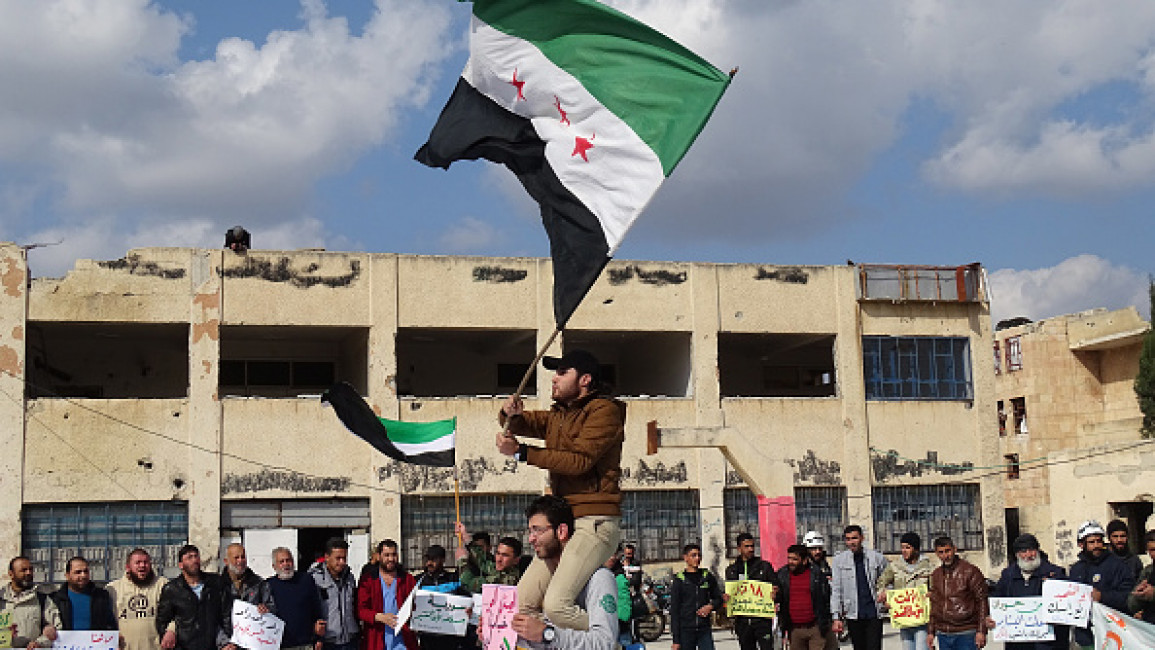Protests against declining living conditions spread across Syria
Protests against declining living conditions and the Syrian regime's economic policies spread across southern Syria this week, a rarity in a country where open dissent is often punishable by imprisonment and torture.
A general strike was declared in the Druze-majority province of Suweida, and hundreds of protesters chanted slogans against the regime.
In neighbouring Daraa province, some villages participated in the strikes, with demonstrators raising the Syrian revolutionary flag and chanting, "Bashar … Go! We want to live!"
The protests erupted after the Syrian currency reached an unprecedented low of 15,000 Syrian pounds per US dollar on Tuesday, 15 August, down from 7,000 at the beginning of the year.
The Syrian government also increased fuel prices this week and has steadily rolled back subsidies for critical staples, such as heating and cooking fuel.
The UN has said that 90 per cent of the country lives in poverty, and more than half the population is food insecure.
In a move to try to blunt the impact of the price increases on Syrian families, Syrian president Bashar al-Assad doubled public salaries on Wednesday.
Economists said the wage increase would likely be wiped out by subsequent inflation as the pound's value continues to fall.
Simmering anger, inflamed
Despite the initial catalyst being economic, activists said the protests tapped into simmering resentment against the regime.
"The demonstrators don't have specific demands yet, although the slogans they chanted yesterday were primarily political. They hold the head of the Syrian regime responsible for the deterioration of living conditions," Ryan Marouf, an activist and editor of Suwayda 24, told The New Arab.
Opposition groups in Daraa also expressed solidarity, with the "Association for Free Men of the Arab Mountain" publishing a statement giving their "full support to the popular movement in Suweida."
"The Association will work from this moment forward to prepare all methods to protect our free people and support the general strike … and prevent any security chaos," the statement read.
Suweida has been afforded some autonomy amid Syria's civil war, as the province largely kept to itself.
Local militias such as the "Sheikhs of Dignity" have also taken security into their own hands, ousting some regime security forces from the province after accusing them of being behind kidnapping and drug trafficking gangs.
On-and-off protests have occurred in the province since the beginning of Syria's economic collapse in 2019, with only occasional violent interference from regime security services.
However, this week's protests began to spread to areas outside the typically restive south, with protesters chanting against the regime in Jaramna, a suburb of the capital city, Damascus, on Friday.
Other Syrians chose a more subtle form of dissent, holding up slips of paper containing protests and demands in front of iconic locations nationwide.
"The Syrian people, regardless of sect, say enough humiliation. The future of our youth is not a game to be played in your hands," one such paper read, held up in front of a Syrian government building.
The protests are part of a new, pan-Syrian movement called the "10th of August Movement," which calls for peaceful demonstrations and strikes to protest "the state's disregard for the future of the people."
Syrian authorities have yet to respond directly to protests, though activists are bracing themselves based on past experiences of security forces cracking down on dissent with force.
"It's likely that there will be a reaction from the authorities at the present time, as this might detonate the already inflamed street anger," Marouf said.
"However, it is difficult to bet on the reaction of the regime, which did not hesitate to break up a demonstration last year in Suweida with live ammunition," he added.



